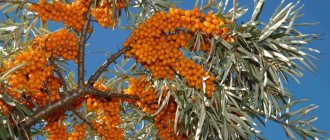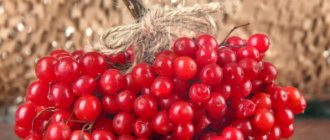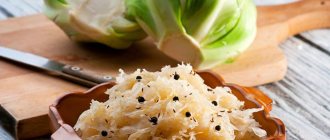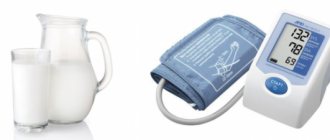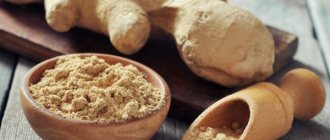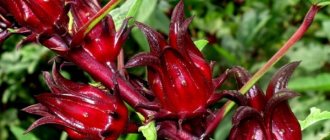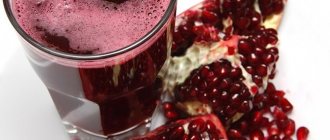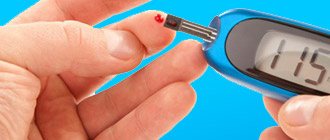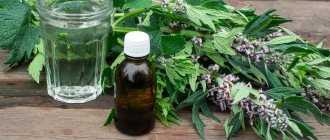The Latin name for persimmon translates as “food of the gods,” and lovers of this fruit agree: its taste is truly divine.
Persimmon is considered to be the national fruit of Japan, although in fact its homeland is China. Today it is also grown in Korea, Burma, India, Pakistan, Europe, Australia and the southern United States. That is, persimmon is an “inhabitant” of warm countries with a dry climate. Cold winters scare her and drought kills her.
general characteristics
Content:
- general characteristics
- The nutritional value
- Beneficial features
- Role in the body
- Side effects
- Medicinal properties
- How to choose the right persimmon
- Interesting recipes with persimmons
- Interesting facts about persimmons
Young foliage on a persimmon tree is usually light green in color, and as it becomes more mature, it acquires a rich dark shade. By the way, in the homeland of persimmon, the leaves of this tree (fresh or dried) are used to brew healing tea. The flowers of this culture are divided into female and male. Women's - single, cream color. Male ones are pink, in inflorescences.
More often, only one type of flower is found on one tree, although some varieties can be bisexual. Ripe fruits range from bright orange to red-brown in color and are juicy and sweet. Unripe fruits tend to be tart and very sour. The diameter of a ripe fruit, depending on the variety, can range from 1.5 to 9 centimeters [1].
There are many types of persimmons in the world. Different varieties may differ significantly in appearance and taste, but they have the same basic beneficial properties.
The nutritional value
One average persimmon contains approximately 120 kilocalories and consists of almost 20 percent carbohydrates.
This Chinese delicacy can provide about a fifth of the daily fiber requirement, and it contains approximately 110% of the daily minimum vitamin C.
In addition, persimmons contain minerals and plant compounds that are beneficial to humans, such as zeaxanthin, lutein, lycopene and tannins. The latter give the unripe fruit a tart and bitter taste. Other important components include catechins (strengthen capillaries), betulinic acid (an antitumor substance), and carotenoids. Nutritional value (per 100 g) [2][3]
| Calorie content | 70 kcal |
| Squirrels | 0.6 g |
| Fats | 0.2 g |
| Carbohydrates | 18.5 g |
| Cellulose | 3.5 g |
| Vitamin A (retinol) | 80 mcg |
| Vitamin C (ascorbic acid) | 7.4 mg |
| Vitamin E (tocopherol) | 0.74 mg |
| Vitamin K | 2.5 mcg |
| Vitamin B1 (thiamine) | 0.05 mg |
| Vitamin B2 (riboflavin) | 0.04 mg |
| Vitamin B3/PP (niacin) | 0.3 mg |
| Vitamin B6 (pyridoxine) | 0.1 mg |
| Vitamin B9 (folic acid) | 8 mcg |
| Vitamin B4 (choline) | 7.4 mg |
| Calcium | 7 mg |
| Iron | 0.16 mg |
| Magnesium | 9 mg |
| Phosphorus | 16 mg |
| Potassium | 160 mg |
| Sodium | 0.9 mg |
| Zinc | 0.13 mg |
| Copper | 0.11 mg |
| Manganese | 0.3 mg |
| Selenium | 0.5 mcg |
Beneficial features
The nutritional components that make up persimmon have a beneficial effect on the entire human body:
- support the health of the nervous system, bones, teeth, skin, eyes;
- promote the production of red blood cells;
- strengthen the immune system;
- regulate glucose in the bloodstream;
- protect cell membranes from damage;
- slow down signs of aging;
- prevent various types of cancer;
- improve metabolism;
- reduce blood pressure;
- increase cognitive functions of the brain;
- improve digestion;
- contribute to the effective recovery of the body after illness.
Benefits and harms for hypertension
People suffering from hypertension account for approximately 20-30% of the adult population; for older people it is 55-60%. Every year the percentage of each category of people grows. Both women and men suffer from the disease.
Let's take a closer look at how persimmon affects the body with high blood pressure, how much it reduces blood pressure, and whether it brings it back to normal. The benefits of persimmon for hypertensive patients are obvious:
- the release of excess fluid reduces the load on the heart;
- metabolic processes function in a new way;
- pressure begins to return to normal;
- In addition, the walls of blood vessels become elastic, the body receives the necessary microelements and is cleansed of toxins.
This variety of beneficial properties comprehensively solves the problems of the whole body.
Attention!
Unripe fruits should not be consumed. They have an astringent taste because they contain tannin. This element can lead to constipation and hemorrhoids. Those who suffer from diabetes should not eat persimmons (the sucrose content in persimmons is about 25%).
Role in the body
This exotic fruit is more than just a delicious dessert. Persimmon has many beneficial properties for human health.
Cholesterol control
Laboratory studies have shown that persimmon can affect blood cholesterol levels. The results of a nine-week experiment confirmed that daily consumption of fruit reduces not only “bad” cholesterol in the bloodstream, but also other types of lipids. Biologists say that the reason for this effect is the tannins (tannins) that make up the berries. At the same time, less ripe fruits contain more of these substances [4].
Cardiologists, citing the results of their own experiments, added persimmon to the list of products that reduce the risk of developing cardiovascular diseases [5].
Visual acuity
Persimmon is an important food for eye health.
Vitamin A, zeaxanthin, lutein, lycopene, which are part of the fruit, significantly improve vision. These ingredients help prevent macular degeneration and cataracts, disorders that lead to blindness. Research shows that lutein and zeaxanthin can completely cure some eye diseases.
Antiviral agent
The antiviral effect of persimmon is achieved through tannins, which block viruses and prevent the spread of infection. Researchers say this fruit can destroy intestinal viruses. The results of scientific experiments allowed biologists to conclude that persimmon is effective as a natural antiviral agent.
Antitumor effect
These exotic fruits contain a huge amount of anti-cancer substances. They protect the body from free radicals, which are a byproduct of cellular metabolism and cause mutation of healthy cells. As a result, a malignant tumor grows in the damaged area of tissue. Antioxidants contained in persimmon prevent and stop these dangerous processes. Phenolic compounds, vitamins A and C, found in large quantities in persimmons, are extremely important for effective protection against cancer. Considering all this, it becomes clear why persimmon is called a cure for cancer [6].
Immunity
This orange fruit is one of the leaders in ascorbic acid content. Only 1 fruit contains a daily dose of vitamin C [7]. And it is known to stimulate the immune system and activate the production of white blood cells (leukocytes), which are the body’s “line of defense” against germs, viruses, fungi, toxins and foreign bodies.
Digestion
Persimmons, like most fruits, are an excellent source of fiber.
Dietary fiber enhances intestinal motility, improves the secretion of gastric juice, and also relieves diarrhea or constipation. It is believed that foods rich in these fibers serve as a preventive measure against colorectal cancer and other colon diseases. For overweight people, fiber from persimmon pulp will help them lose weight faster.
Potion for old age
This “food of the gods” is rich in various beneficial substances, especially beta-carotene, lutein and lycopene. All of them function as antioxidants in the body, which means they can prevent signs of premature aging. Frequent consumption of fresh persimmons will protect against early wrinkles, age spots, Alzheimer's disease, chronic fatigue, vision loss and other unpleasant symptoms.
Normalization of blood pressure
Potassium was also found in persimmons, and in considerable quantities. It would be worth recalling that this mineral has vasodilating abilities, which means it significantly reduces blood pressure [8]. Thus, persimmon is an extremely healthy fruit for hypertensive patients. In addition, the chemical composition of the exotic is not devoid of copper, and it is an important element for the production of red blood cells. This property of persimmon is no longer useful only for people with high blood pressure.
Metabolic processes
B vitamins, such as pyridoxine, vitamin B9 and thiamine, are an important component of most enzymatic processes in the body. The normal level of these substances is the key to ensuring that the food processing process proceeds correctly. And proper digestion means a healthy metabolism. In addition, B-group vitamins, present in the delicate pulp of persimmons, are important for maintaining muscle tone, strengthening the immune system and supplying the body with the necessary energy [9].
Chemical composition
Persimmon contains a whole vitamin and mineral complex. It contains:
- potassium;
- magnesium;
- sodium;
- calcium;
- phosphorus;
- iron.
Persimmon also includes minerals:
- copper;
- nickel;
- manganese;
- iodine;
- citric and malic acid.
The vitamin composition of persimmons is also very rich:
- vitamin A is responsible for the condition of the skin, improves vision, helps maintain immunity, and rejuvenates the body;
- B-carotene is a powerful antioxidant and is responsible for the regeneration of cellular composition;
- vitamin B5 lowers cholesterol levels, increases hemoglobin, promotes better absorption of amino acids;
- Vitamin P strengthens the walls of blood vessels and protects against infectious diseases.
By considering the chemical composition of persimmons, you can understand whether the fruit increases or decreases blood pressure, and also why it does not increase blood pressure.
Important!
Due to the high content of potassium, magnesium and minerals, persimmon is a diuretic (has a diuretic effect). When fluid is removed, the load on the heart becomes less, and the functioning of the cardiovascular system improves, which leads to a decrease in blood pressure.
If this effect is beneficial for hypertensive patients, then in case of hypotension you should know when to stop eating persimmons .
Side effects
Allergies to persimmons are extremely rare - and this is good news. However, there is also not very good news. This fruit contains a lot of fiber, but unripe fruits contain specific dietary fibers, which clump into indigestible lumps in the stomach. Doctors call these formations bezoar stones. They inhibit the process of normal digestion of food and also block it in the upper part of the digestive tract.
Large portions of ripe fruit can also cause flatulence, so people prone to bloating are not recommended to indulge in this sunny fruit too much. A similar warning applies to hypotensive people, as this fruit lowers blood pressure.
In addition, it is not advisable to consume a lot of persimmons for people with diabetes (as it is a very sweet fruit), for people with chronic intestinal diseases, or on an empty stomach (it can cause diarrhea).
Medicinal properties
In traditional Chinese medicine, persimmon is used as a remedy for hiccups. To get rid of unwanted contraction of the diaphragm, Eastern healers use 9 g of persimmon and 3 g of ginger. The products are crushed, a little water is added to this slurry and brought to a boil. Then the tasty medicine should be eaten quickly.
And the same oriental doctors used dried fruits to get rid of asthma, respiratory tract infections and diarrhea. To do this, still green fruits (as soon as they begin to turn slightly yellow) are picked from the trees, peeled and dried under the sun until a white glaze appears. After this, the fruit turns into medicine.
But Japanese researchers suggested that cosmetologists use only the peel of the fruit. In their opinion, the fruit shell contains the maximum amount of proanthocyanidins - essential substances for fighting aging. And European cosmetologists advise using a paste of persimmon and egg yolk as a mask for acne and enlarged pores.
How to choose the right persimmon
The fruits of these trees can be consumed raw, dried or in the form of jams. Ripe fruits are always fleshy and sweet in taste. Fruit that is too soft is a sign of rotting. Such fruits are no longer suitable for food. You should not eat unripe fruits: they are tasteless, tart and can be harmful to health.
Here are some tips on how to choose the most delicious persimmon:
- All attention to form! Fruits with a flat base, reminiscent of tomatoes, are usually always sweet. Elongated, like an acorn - tart.
- Almost all small persimmon fruits are tart.
- Fruits with cracks are a sign of rotting.
- A properly ripened fruit should be orange or reddish and dense in consistency. Excessively soft fruit is always overripe.
Rules for use with high blood pressure
Persimmon is a low-calorie product . For high blood pressure, it is recommended to consume up to 3 pieces per day, preferably before 17:00. In this case, the fruits must be ripe, with minimal viscosity, medium size and proper appearance.
Take before the main meal: at least 30 minutes before. After eating, it is advisable to eat persimmons an hour later. If the main meal included meat products, then it is better to eat persimmons after 2-2.5 hours.
Advice
Do not forget that persimmon is a seasonal phenomenon, and it will bring maximum benefit at the height of ripening (late October).
Interesting recipes with persimmons
The most common way to consume persimmons is raw as a dessert.
Some may be surprised, but this fruit goes well with meat and fish, and is added to salads and cookies. Here are some tasty examples.
Duck with persimmon
Take:
- duck (1.5 kg);
- persimmon (300 g);
- onions (2 pcs.);
- butter (50 g);
- white wine (100 ml);
- olive oil (1 tbsp);
- vinegar (1 tsp);
- ginger (2 slices);
- cloves (2 cloves);
- thyme (0.5 tsp);
- cinnamon;
- red pepper;
- salt.
How to cook:
Marinate the cleaned and cut into pieces duck carcass for 4 hours. Prepare the marinade from onions, ginger, cloves, thyme, red pepper, vegetable oil and wine. Then place the pieces of meat on a baking sheet and bake until golden brown.
During this time, heat the butter and put the persimmons cut into slices into it, add cinnamon and red pepper. Fry for about 3 minutes. After this, remove the persimmon slices and add the remaining marinade to the mixture. Simmer until the liquid is reduced by half. Place the finished duck with persimmons in the sauce and simmer for another 5 minutes.
Royal snack
Place a few slices of salmon on a plate. Near the fish on a piece of lettuce is a boiled egg, cut lengthwise. Place a teaspoon of red caviar on each half of the white. Mix soft processed cheese with ginger and salt. Place the finished mixture on salmon slices (you can use a culinary syringe), and on top - a peeled slice of ripe persimmon.
Homemade cookies
Take:
- flour (2 cups);
- chopped walnuts (1 cup);
- sugar (1 cup);
- chicken egg (1 pc.);
- butter (100 g);
- baking powder (1.5 tsp);
- nutmeg;
- persimmon (2 pcs.).
How to cook:
Grind the eggs with sugar and butter, pour into flour with baking powder, add persimmon puree. Stir thoroughly. Add nutmeg, cinnamon and finely chopped walnuts. Mix. Place onto a baking sheet with a tablespoon or using a pastry bag. Bake for about 15 minutes.
Persimmon: benefits and harm
What are the benefits of persimmon?
Natalya Gronskaya
gastroenterologist, nutritionist, integrative medicine doctor, aesthetics and quality of life clinic GMT Clinic
– Antioxidants. The main value of persimmon is the presence of a large amount of antioxidants. One of them is beta-carotene, which is a precursor to vitamin A. There is more of it in persimmons than in carrots, peppers or pumpkin. If you eat a fruit weighing about 150 g, you can get up to 20% of the daily requirement of this substance. Vitamin A is important primarily for the renewal of cells in our body. Beta-carotene also fights free radicals, protecting cells from destruction and slowing down the aging process.
Vitamin C. Persimmons have a high content of vitamin C. In combination with B vitamins (80 g of persimmon covers the daily requirement for vitamin B5), it stimulates the activity of the immune system, increasing the body's resistance to viral and bacterial infections. In addition, ascorbic acid in combination with vitamin P, which is also found in sufficient quantities in persimmons, has a beneficial effect on blood vessels. And this generally improves blood flow and is an excellent prevention of atherosclerosis. It is no coincidence that persimmon is recommended to be included in the diet of those who are at risk for developing cardiovascular diseases.
Microelements. The microelement composition of persimmon is also diverse. It contains potassium, which helps remove excess water from the body. This is useful to note for people prone to high blood pressure. Another valuable microelement is magnesium. It normalizes the functioning of the heart muscle, has a beneficial effect on the nervous system and improves the absorption of other beneficial substances. Magnesium helps remove sodium salts, thereby reducing the likelihood of kidney stones.
What health problems are persimmons good for and why?
Persimmon is often prescribed for anemia. This berry actually contains enough iron, which is easily absorbed. It also contains iodine, which is useful for the normal functioning of the thyroid gland. By the way, this microelement is rarely found in products of plant origin. The record holder for its content is seaweed, but, alas, it is not to everyone’s taste.
How does persimmon affect the intestines?
Persimmon stimulates intestinal motility. It is absorbed on average in three hours, but due to the content of coarse dietary fiber it has a laxative effect. When consumed in moderation, persimmon normalizes stool. But this statement applies only to ripe fruits. Otherwise, it may have the opposite effect, particularly for those who suffer from chronic constipation.
The astringent property of persimmons (if consumed in excess), which is associated with the tannin content, can lead to bloating, stomach pain and constipation.
Harm of persimmons: who should not eat persimmons?
It is not recommended to eat persimmon during an exacerbation of chronic gastrointestinal diseases. People with problems with kidney stones should not use it either, as persimmon has a diuretic effect.
Can you eat persimmons if you have diabetes?
Persimmons contain quite a lot of carbohydrates - 18.5 g per 100 g of product, with 25% of this amount coming from glucose and fructose. At the same time, persimmons have a low glycemic index. This is due to the fact that it contains a lot of tannins, which slow down the absorption of nutrients, including carbohydrates.
People with diabetes need to be careful when consuming persimmons. There are no categorical contraindications in this case, but you should not abuse the berry. It is recommended to consume no more than 50–100 g of persimmon per day (this is on average half the fruit) and after consulting a doctor. It is very important to observe the body’s reaction; it is best to measure the glucose level after eating persimmons using a glucometer. If you tolerate this amount of persimmon well, your condition will not change, follow this norm, lowering it by an average of 10–15%.
Also, patients with diabetes are advised to pay attention to less ripe persimmons. It contains more tannins, which means blood glucose will rise more smoothly. In addition, such fruits generally contain less sugar and a lot of dietary fiber, which is generally beneficial for people with diabetes and those prone to weight gain.
How many persimmons can you eat in a day?
When including persimmons in your diet, you need to consider the total amount of simple sugars in your diet. Expect that the average fruit weighs about 250–300 g. On average, its calorie content varies from 150 to 220 kcal. If you take smaller varieties (Korolek persimmon), then the calorie content is about 50 kcal per 100 g. On average, with a varied diet, it is reasonable to consume no more than 2-3 pieces per week. If we talk about smaller fruits, then one per day, taking into account the daily intake of simple sugars. Eating one persimmon every day is not harmful. And further. The most beneficial substances are found in fresh persimmons.
Also find out how to choose the right persimmons in the store? What to look for?
How are dried persimmons beneficial and who is not recommended to eat them?
Sun-dried or dried persimmon has its own characteristics. First of all, it is calorie content (it is four times higher than that of fresh berries). 100 g of product contains about 300 kcal. In cases of weight loss, diabetes or obesity, you should not get carried away with dried persimmons. On the other hand, dried persimmon is also a source of microelements and vitamins, plus, due to its high carbohydrate content, it is an excellent option for a snack before sports activities. But it is important to understand that 30 g of dried persimmon is an alternative to 100 g of fresh berries.
Is persimmon jam healthy?
Persimmon jam, if prepared quickly, retains its vitamin composition. It has a lot of sugar! So this dish is contraindicated for people who are overweight and have diabetes. On average, if you meet the daily intake of simple carbohydrates, it is enough to eat one tablespoon of this jam per day.
What to cook from persimmons?
Spicy persimmon sauce
Ingredients
: large persimmon – 2 pcs., sweet red onion – 1 pc., hot pepper – 1 pc., 1 slice of fresh ginger (about 1 cm), 2 tbsp. spoons of lemon juice, 1 tbsp. spoon of olive oil, salt to taste.
Preparation
Medium ripe persimmons are best suited for this dish. If the fruit is too soft, the chutney will turn into mush. And unripe persimmons can give the dish an astringent taste.
Peel the persimmon, remove the seeds, and chop finely. Peel and chop the onion. Remove the seeds from the hot pepper and chop very finely. Grate the ginger root on a fine grater. Mix all ingredients, season with olive oil and lemon juice, add salt to taste.
For information
Indian chutney sauce goes well with rice, omelets, hot fish, poultry and meat dishes. This spicy sauce will turn even a cold boiled breast into an unusual and very tasty appetizer.
Persimmon baked with sour cream
Ingredients
: large persimmon – 6 pcs., sour cream – 200 g, eggs – 2 pcs., sugar – 150 g, flour – 2 tbsp. spoons, grated zest and juice of one lemon, a pinch of vanillin if desired, powdered sugar for decoration - 1 tbsp. spoon.
Preparation
Place whole persimmons in a saucepan, add water so that it completely covers the fruits. Add lemon juice and zest, 100 g sugar. Cover with a lid and place over high heat, bring to a boil, turn off, leave for 30 minutes.
Beat the eggs with the remaining sugar and vanilla, add flour and sour cream. Cool the persimmons, remove the skin and seeds, place in a greased baking dish, and pour over sour cream sauce. Bake for 20–25 minutes in the oven at 180 degrees.
For information
A very simple and flavorful dish that can replace a full-fledged dessert.
Persimmon and banana smoothie
Ingredients for 2 servings
: medium-sized ripe persimmon – 2 pcs., ripe banana – 2 pcs., orange – 1 pc., natural yogurt – 150 ml.
Preparation
Peel the persimmons and remove the seeds, separate the bananas from the skins, chop and blend in a blender. Squeeze the juice from the orange, add to the smoothie and beat again, mix with yogurt.
For information
This smoothie can easily replace a snack, and if you add a handful of nuts, it will turn into a complete, nutritious breakfast that will give your body everything it needs for a great start to the day.
Persimmon jam
Ingredients
: persimmon – 1 kg, sugar – 600 g, citric acid – 1 pinch, optional.
Preparation
Wash the persimmon, remove the stem and seeds. Cut the pulp into large slices, sprinkle with sugar and let brew for 3-4 hours. During this time, the persimmon will release juice, with which you can then make jam. Place the persimmons on low heat and simmer for 45–50 minutes until tender. 10 minutes before readiness, you can add citric acid to add sourness. Place the jam in sterilized jars, close the lids, turn the lids down and let cool completely under a towel.
Which persimmon is suitable for jam?
The ideal option is ripe, but quite dense fruits; the jam from them will be aromatic and viscous. You should not use overripe and too soft persimmons for jam; they will immediately boil and turn into porridge. Unripe fruits will be too tart, so you may need more sugar.
Follow the news, subscribe
mail.
When quoting this material, active link to the source
required.
